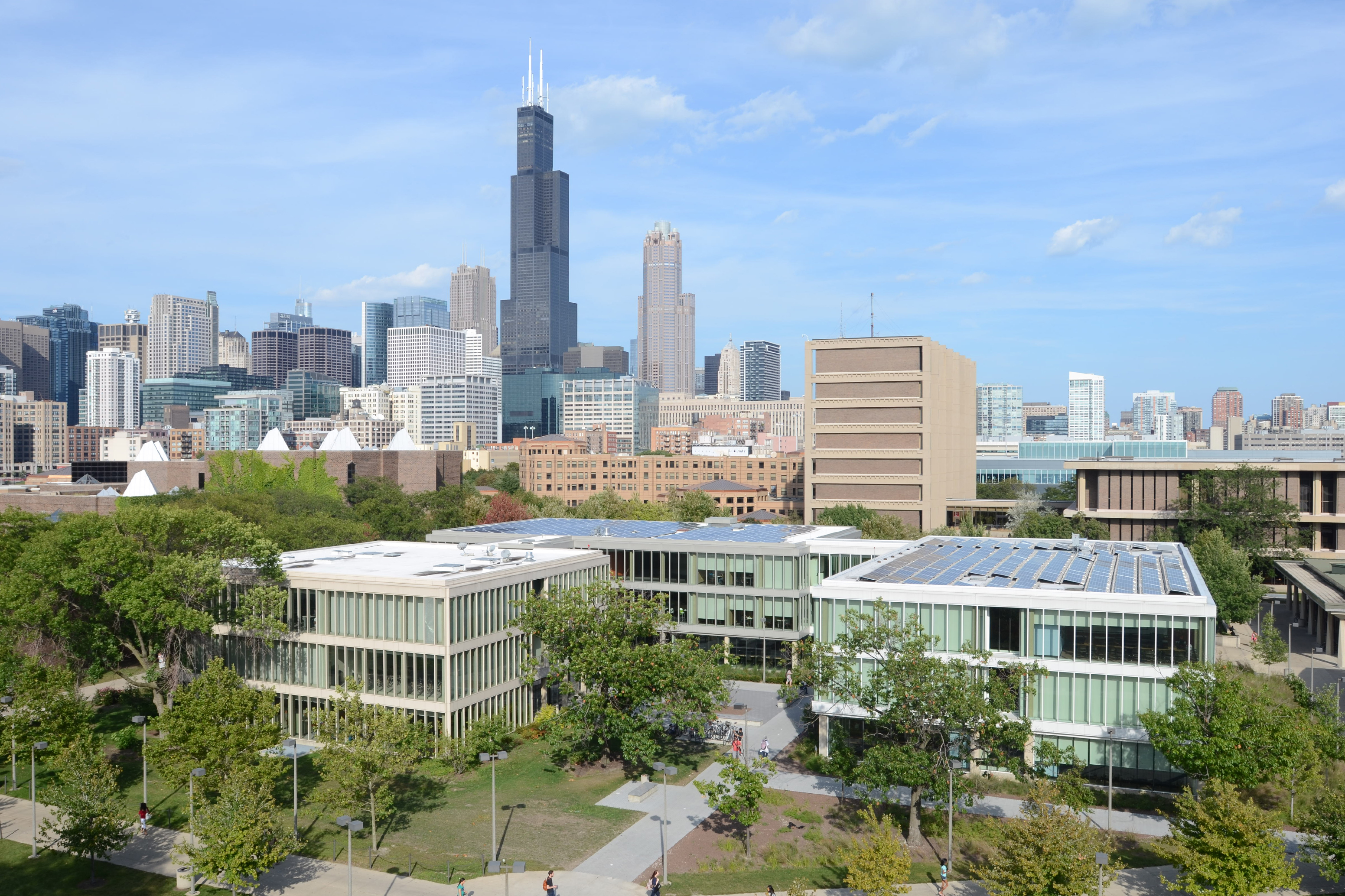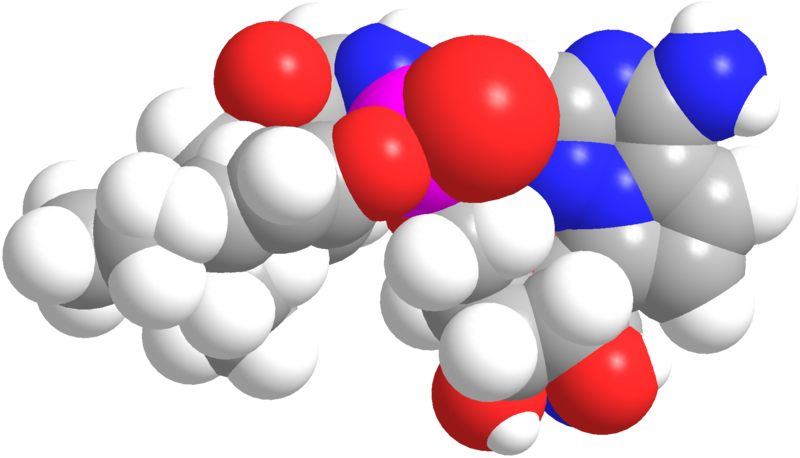May 20, 2020 I Jola Glotzer
Will remdesivir-baricitinib combo synergize in fighting COVID-19?
Kudos to CBC member institution — UIC — for continuing their efforts to find effective COVID-19 therapeutics

UIC campus. Source: WikiMedia Commons
The CBC is pleased to share that its member institution — the University of Illinois at Chicago (UIC) — is beginning a second clinical trial to study a potential treatment of COVID-19 (see below). Supported by the National Institute of Allergy and Infectious Disease (NIAID), this clinical trial will test whether any synergy exists between the antiviral drug remdesivir and a rheumatoid arthritis treatment drug, baricitinib, in fighting the acute respiratory distress syndrome (ARDS), one of the most serious symptoms of the COVID-19 disease.
Both drugs, when administered alone, have already shown to have some beneficial effects on alleviating the symptoms and shortening the recovery time of severely ill COVID-19 patients with pulmonary complications. Any synergy, if found, could become a life-saving treatment method for many suffering from the pandemic. Good luck, and awaiting to see a successful outcome of the trial!
May 18, 2020 | By Jacqueline Carey | UIC today
New remdesivir trial at UIC tests drug in combination with baricitinib

Remdesivir 3D structure. Source: Wikipedia.
The University of Illinois at Chicago is enrolling patients in a second clinical trial to study the drug remdesivir as a treatment for COVID-19.
Funded by the National Institute of Allergy and Infectious Disease (NIAID), this international randomized, placebo-controlled clinical trial will study the antiviral drug in combination with an anti-inflammatory drug used to treat rheumatoid arthritis called baricitinib.
This trial follows the NIAID’s Adaptive COVID-19 Treatment Trial in which results showed that patients who were treated with remdesivir recovered faster than those who were in the control group and received a placebo.
“Some patients with severe cases of COVID-19 experience acute respiratory distress syndrome, or ARDS, which is characterized by shortness of breath and rapid breathing due to inflammation in the lungs,” said Dr. Richard Novak, professor and head of infectious disease and principal investigator of the UIC trial. “Because baricitinib helps to reduce inflammation, it makes sense to see if it helps reduce the inflammatory response to the infection, alleviates ARDS and provides an additional benefit to COVID-19 patients who are experiencing severe complications.”
In the trial, all patients — who will be enrolled through the University of Illinois Hospital — will be treated with remdesivir, but only half of the patients also will be treated with baricitinib. The other half will get a baricitinib placebo. Neither the patients nor the doctors and researchers will know which patients receive baricitinib.
“We want to see if patients who get the remdesivir-baricitinib combination have better outcomes,” Novak said.
To be eligible for the trial, patients have to be hospitalized and confirmed to have COVID-19. Patients also must have lung-related complications, including a need for supplemental oxygen, abnormal chest X-rays or an illness that requires mechanical ventilation.
Novak said he expects the majority of patients enrolled in the trial through UIC will be members of communities disproportionally impacted by COVID-19.
According to the National Institutes of Health, the trial investigators anticipate enrolling more than 1,000 participants, including the patients participating in UIC’s trial.
SOURCE:
Adapted (with modifications) from UIC today, by Jacqueline Carey, published on May 18, 2020.
